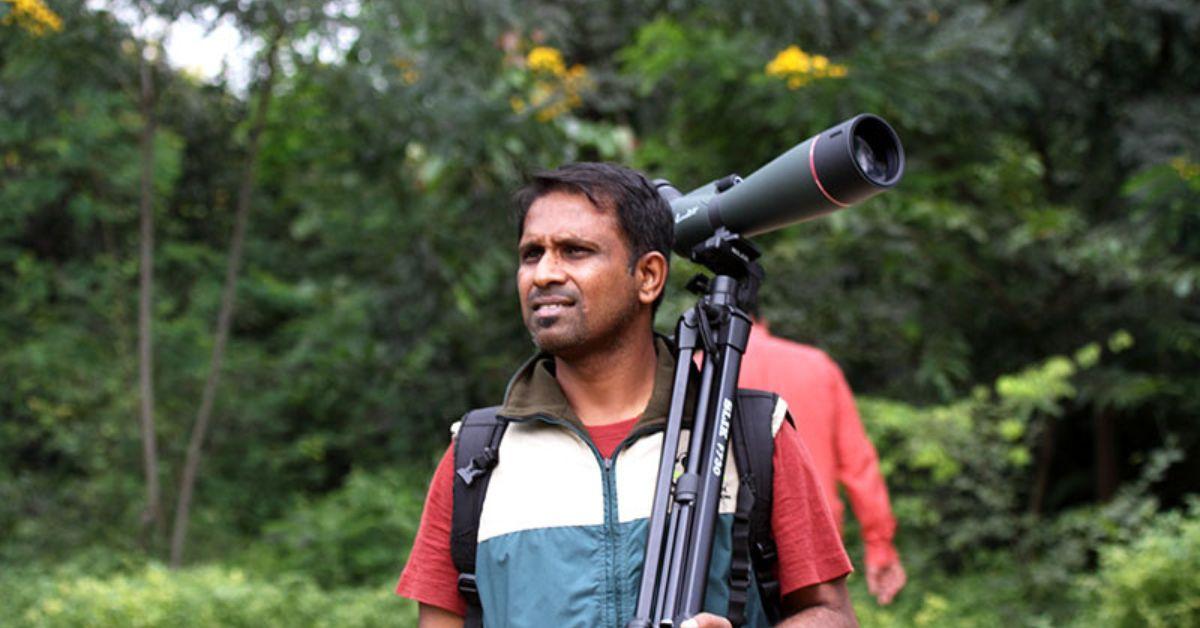Meet an Educator is a monthly series by Early Bird, where we feature the work of educators across India who are actively spreading the joy of birds and nature. This month’s featured educator is Saptha Girish K, a nature educator from Mysuru, Karnataka who leads bird and nature walks for children and youth.
Do tell us about yourself, where you are from, and your work
I am Saptha Girish M.K., basically from Mysore and have done my M.Sc. in Environmental Science from Mysuru University. Currently I work as an Asst. Supervisor in the Office of The Accountant General, Bengaluru. I am also one of the founder members of the organisation – ‘Aranya Outreach’. The main objective of this organization is to sensitize people/community about nature and its importance for our own survival. We do this by conducting Bird/Nature walks, sessions at schools and colleges as well as camps for children about various aspects of conservation.
Are you a birder? What about bird watching excites you?
I am a birder and have been birding for quite some time now. Everything about birds and nature excites me, I am keen in understanding their behavior and I observe birds for hours. I love to observe their territorial combats and also interested in understanding the process of sexual selection.
When and how did you get interested in bird / nature education?
The interest for Bird/Nature education sparked as a college going student, I just wanted to be in close connect with nature/wildlife and the nearest place for me then was the zoo. I have volunteered at the Mysore Zoo since 1995, and a bunch of us volunteers initiated a few activities to create awareness among the visitors about the zoo animals. We were extensively supported by Mr. Shivanna, Manager at the zoo, who was very keen on doing some educational activity at the zoo. Personally, he was the pillar in formulating the Zoo education at Mysore Zoo which is ongoing at a very strong level now. It was from here that my interest as an educator blossomed, ever since I have worked as a resource person at the zoo and also curated many sessions including bird watching, camps for kids and nature talks at schools/colleges through Aranya Outreach.
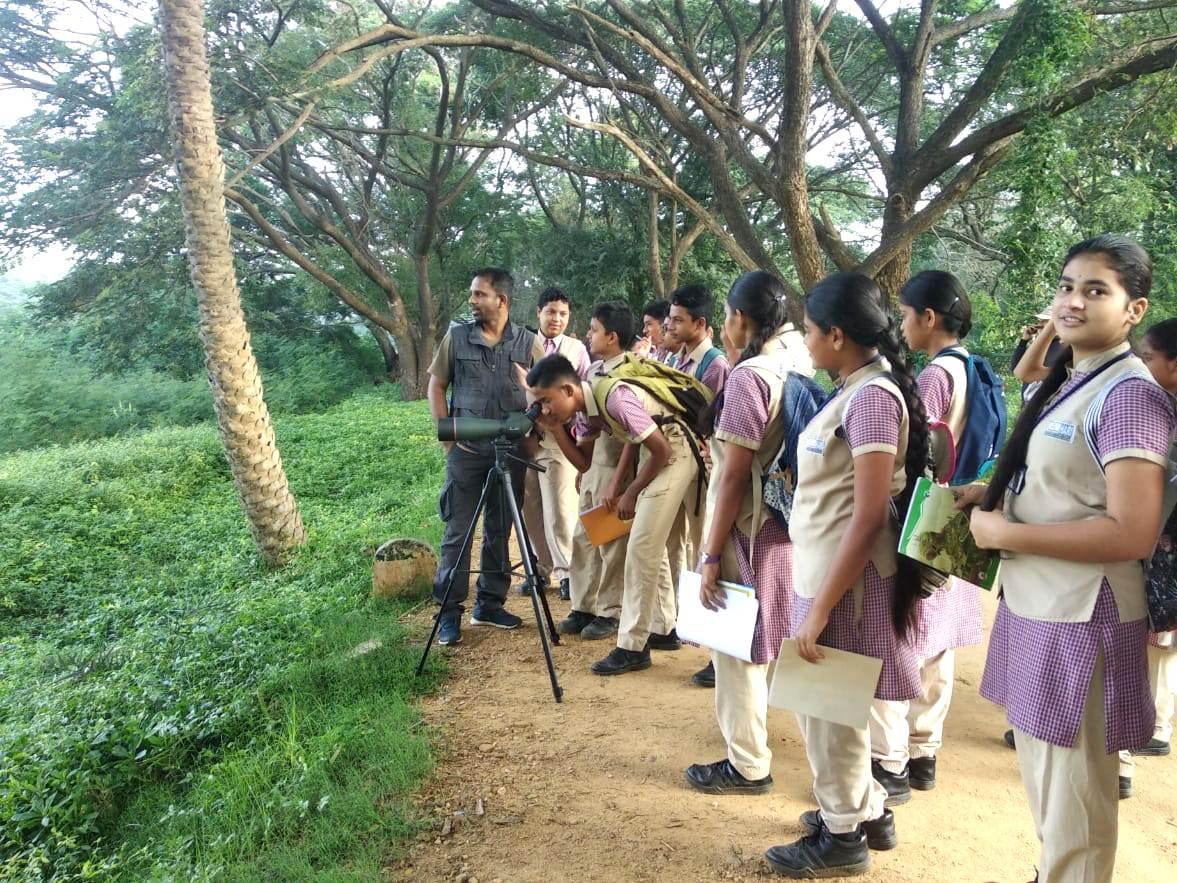
What do you hope to achieve through your education work?
Right now my main objective is to sensitize people from various walks of life and not children alone. We need to realise that we have only one habitable planet and we are just a very minute part of it. I want people to realise that if we want our race to survive, we need to urgently understand the importance of the fragile ecosystems around us. It could be a small lake, a green patch or a forest which supports an array of biodiversity. All these are important to maintain the ecological balance of this planet. I intend to incite curiosity among the groups I work with and help them connect better with the environment.
Why do you believe it is important for children to learn about birds or connect with nature?
Every time I see a bird, I become a kid myself! This continues to happen even now, after decades of birding… Today, life has fast forwarded and everyone is in a rat race to achieve certain goals. In the process, we have forgotten how to ‘live the journey of life’. Our busy lifestyles have pushed our children to the extent that they are totally disconnected from nature and spend most of their time indoors.
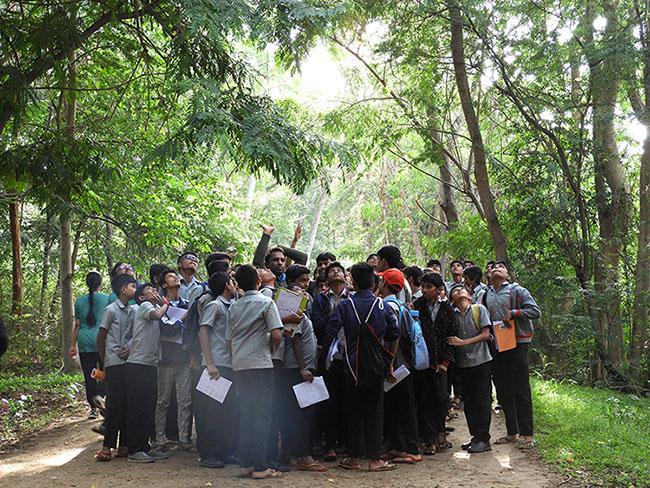
Without the connect of nature, children won’t understand what life is all about. It is very important that children understand that they are part of this ecosystem and there is so much to learn from observing various things in nature and to adapt it in our lifestyle for a better living. We need to transform children from a virtual world to the reality and beauty of the natural world.
What tools or resources have helped you in teaching about birds? Can you describe an approach that has worked exceptionally well for you?
One of the common tools we all use is a pair of Binoculars and field guides. A spotting scope would be more helpful to watch birds for longer duration, it encourages kids to observe behavioral aspects. The camera has also been very useful to draw the attention of children, especially in larger groups. In my experience, everybody cannot use the binoculars or the spotting scope at the same time, and most often the bird takes off even before the children have a chance to see it! In this scenario, a photo of the bird on the field can be clicked with the camera and displayed immediately. This helps children connect to the on-field specimen better and they form a connection and relate to the species easier or quicker. These resources combined with flashcards, pocket guides and actually the habitat posters by the Early Bird team have helped me better reach the kids and the community during my field visits. Above all, if one can create curiosity in the group and encourage them to question it can be a very important tool in understanding the surroundings better and make the sessions or walks more interactive and meaningful.
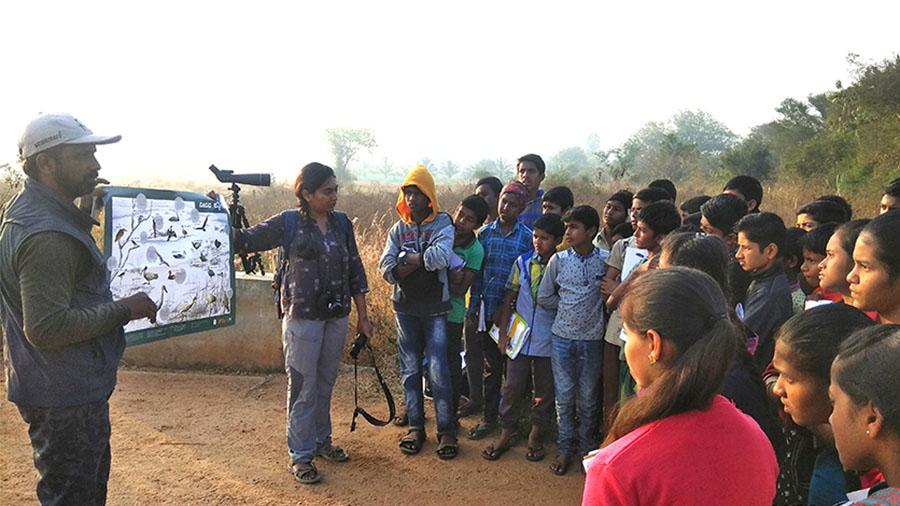
Have you encountered a significant challenge as a bird/nature educator, how did you overcome it?
Working with various age groups and mixed groups and keeping their attention throughout is a challenge. Initially I used to stuff the group with over-information, but gradually I have realised that I need to adapt to the group and also get down to the levels of the group and interact with them. It’s all about creating curiosity and enabling them to wonder, and ask questions. You need to be spontaneous at times and relate the behavior of the bird to that of the group and keep the spirit of the group going.
Do share any memorable moment or experience you have had in teaching kids about birds/nature.
One of the most memorable moments and challenges I’ve faced was handling a group of visually challenged kids from the Ranga Rao Memorial School for the Disabled in Mysuru. I was asked to handle a group of visually challenged kids from this school for a nature trail/trip as they had never been on a nature trail in their lifetime, this was an unexpected challenge thrown at me and without hesitation I had agreed to be part of it. The thought of taking these kids on a nature trail itself was something amazing. After agreeing to do it, did i realise that I was in a fix as I was not sure of how to go about planning the session. Following discussions with my friends I came up with a plan of action.
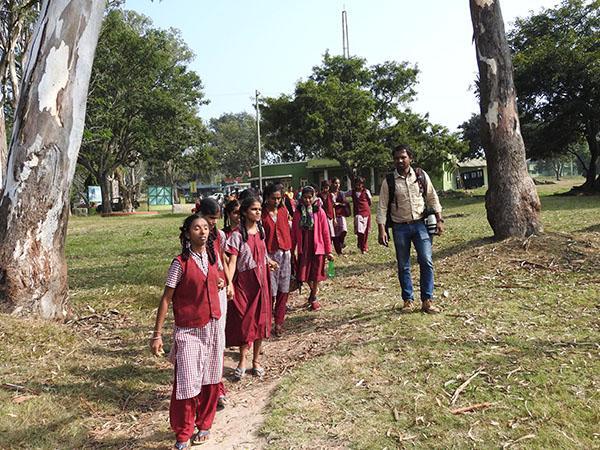
The plan was to prepare a vocal presentation using various calls/sounds (of birds, mammals and insects) and weave these calls into a story as though the children were on a safari through the forest. Following the presentation, I spent time interacting with the kids in their school. This was followed by a visit to the Bandipur National Park with the same group. It was amazing to see these kids respond to new learnings and the way they picked up and tried to etch their own vision about nature. On field, they could recognize a few bird calls and luckily the elephant trumpeted during our safari at the Bandipur National Park which the kids could easily pickup and identify! One kid sitting next to me during the safari said I think the forest is getting brighter sir…. for a second I was like how did she get to know that? She said that she could feel the heat of the Sun on her arms!! I had no words to utter but just pure admiration for their senses and abilities to see the world without the light in their eyes. This has been one of the most satisfying sessions and a really memorable one for the rest of my life.
Have you noticed any changes in your learners after they received exposure to birds and nature-based learning?
Certainly, there is a difference in the approach learners have towards nature once they are exposed to a bird/nature trail. They connect easily to nature and become sensitive towards it. I have seen kids owning the lake or a green patch which they have visited two or three times and in their conversations, they refer to it in terms of “Our lake” “Our hills”… which is so important as they are our future stakeholders of the remaining fragile ecosystems.
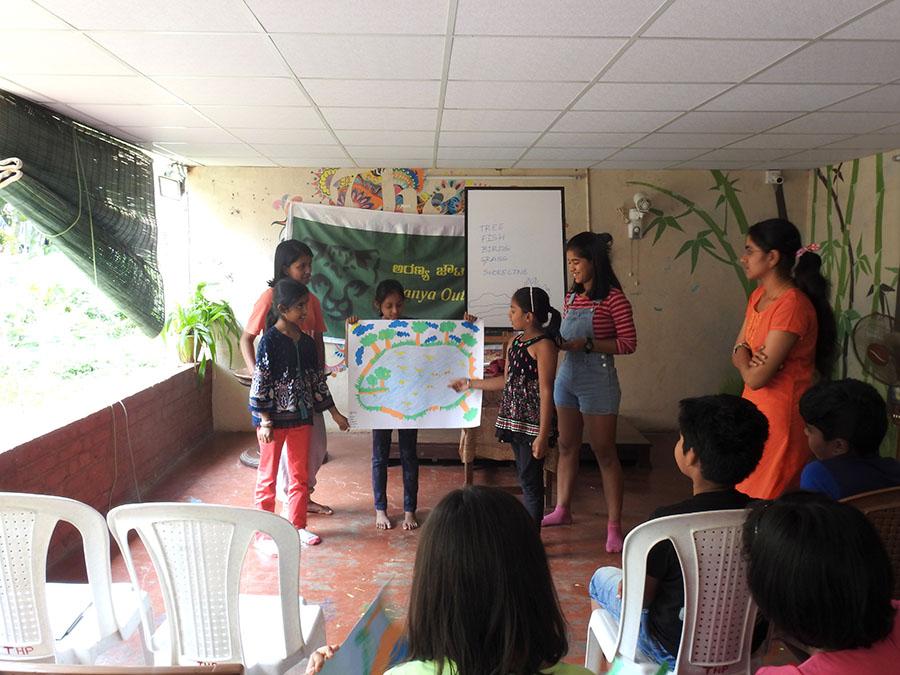
What message would you have for your fellow educators, or somebody starting out in their nature education journey?
The basic thing I feel is one should be passionate about what they are doing. When it comes to nature, we always remain amateurs and there is so much to learn each time we step out and observe. Even as educators we keep learning and we need to have an open mind to absorb that, constantly evolve to share our learnings with the groups we interact with.

